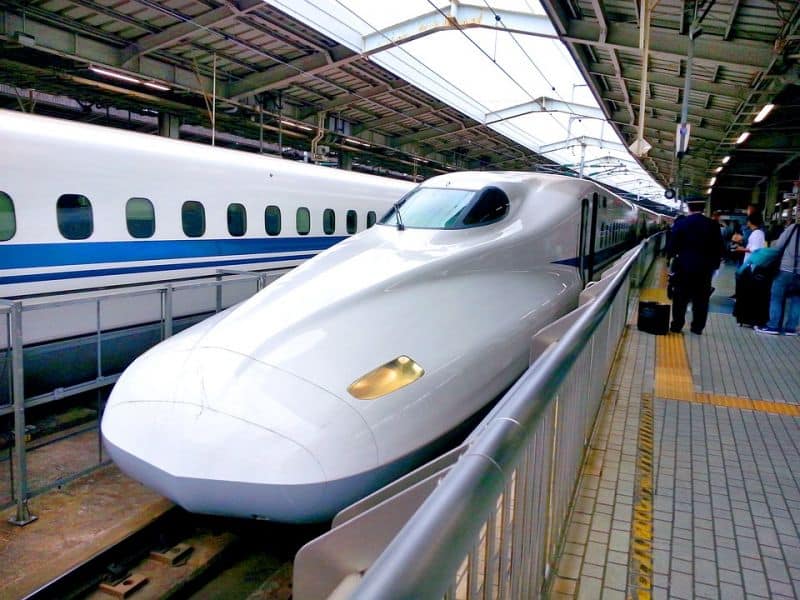New Delhi: Thwarting PM Modi’s ‘Make in India’ policy, reports say, Japanese steel and engineering companies would be the one to make most of profit from Indian bullet train.
Japanese firms are supplying contracts for a USD 17 billion, funding most of them. They are likely to supply at least 70 percent of the core components of the rail line, said five sources in New Delhi with direct knowledge of the matter, NDTV quoted a report by Reuters.
However, Modi’s office declined to comment on the matter. As 2019 elections are near, PM Modi is pressurized due to his previous promise of providing large-scale employment. The agreement between India and Japan for bullet train included the two clauses- promoting ‘Make in India’ and ‘Transfer of Technology’.
PM Modi on the other hand, has received much criticism over the massive project as to why it is given priority when Indian railway needs the amount to be allocated for its repair and betterment.
“The Japanese have reservations on certain issues because they have a concern that there is a difference in the culture and systems of Japan from the culture and systems in India,” said Achal Khare, the managing director of National High Speed Rail Corp Ltd (NHSRCL), the agency tasked to execute the bullet train project.
Two officials on anonymity said that Japanese firms had raised questions about the efficiency of Indian companies and their ability to meet timelines.
“At this stage to expect Indian companies to have a bigger share in manufacturing appears to be a little difficult,” said a senior official at the Indian government’s NITI Aayog, involved in the negotiations.
Only one joint venture
Nippon Steel and Sumitomo Metal Corp, Japan’s biggest steelmaker, and other companies like JFE Holdings Inc, Kawasaki Heavy Industries Ltd, Mitsubishi Heavy Industries Ltd, Toshiba Corp and Hitachi Ltd are likely to bid for different contracts, said three senior Indian government officials involved in the project.
Nippon Steel denied commenting. JFE, Hitachi and Toshiba said they were interested but had not finalised plans of joint ventures with Indian companies. While Mitsubishi Heavy said it had not decided the involvement.
The only collaboration is between Kawasaki Heavy Industries and India’s Bharat Heavy Electricals Ltd, which aims to win carriage orders.
Japanese firms are so keen on quality concerns, even decades-old firms like State-owned Steel Authority of India (SAIL) got overlooked. Left with a small part to play, Indian firms will now largely provide raw materials like cement and supply manpower for the assembly of rails, the sources said.
India’s UltraTech Cement Ltd, Larsen & Toubro Ltd , Bharat Heavy Electricals Ltd and Ambuja Cements Ltd are among those in the line for supplying construction materials and power, the two Indian railways officials said.

